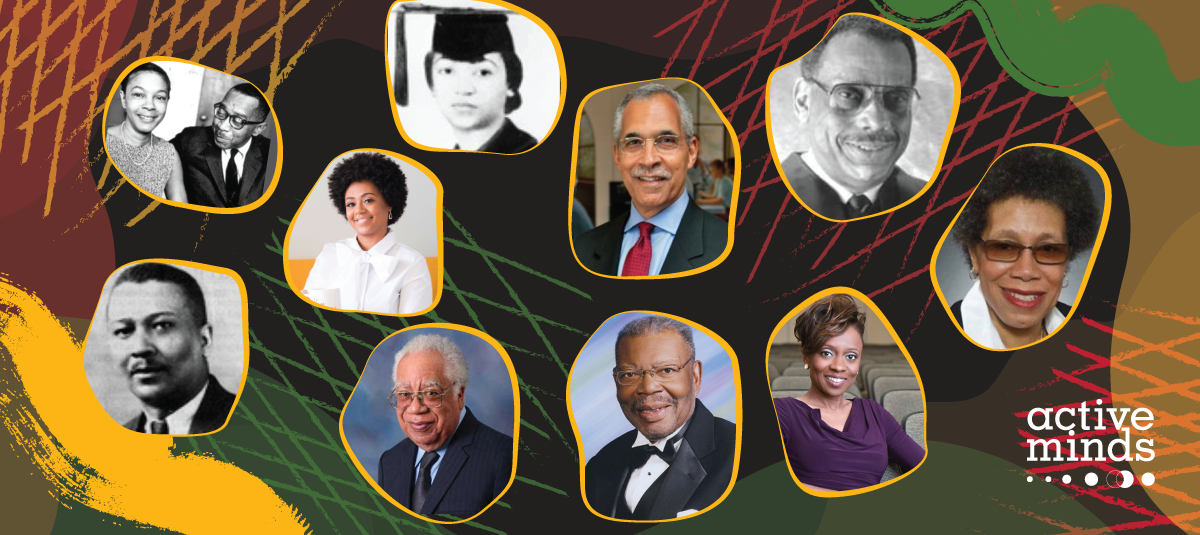In honor of Black History Month, we are excited to share with you ten leaders in mental health and psychology who helped to pave the way despite facing systemic barriers. Each of the individuals listed made extraordinary contributions to their field, and we are proud to share their contributions with you.
Inez Beverly Prosser, Ph.D. (1895-1934)

Dr. Inez Prosser was the first African American woman to receive her doctoral degree in psychology. She is most known for her integral work in the landmark case Brown vs. Board of Education. She found that Black students benefited more in segregated schools because they were more likely to receive affection, support, and a balanced curriculum versus an integrated school; however Black schools were highly under-resourced and inequitable funded. Dr. Prosser was very active in helping many Black students obtain funding for college and spent her last few years teaching at historically Black colleges.
Francis Cecil Sumner, Ph.D. (1895-1954)

Dr. Francis Sumner, known as the “Father of Black Psychology,” was the first African American to receive a Ph.D. in psychology in the United States. His work focused on equality and racial justice within the education system. While teaching at Howard University, he was able to help establish a psychology department and became head of that department. Many argue that his biggest impact was aiding the next generation of successful black psychologists, including Kenneth Clark.
Joy Harden Bradford, Ph.D.

Dr. Joy Bradford is a licensed psychologist with her Ph.D. from the University of Georgia. She focuses on mental health topics within the African American community and the importance of Black women setting boundaries to safeguard their well-being. Dr. Bradford currently has a popular mental health platform, Therapy for Black Girls, which includes a weekly podcast with millions of listeners. Her content varies from confronting racial injustice at work, to taking care of yourself during the pandemic, to personal development, and more.
Claud Steele, Ph.D.

Dr. Claud Steele has researched stereotypes for more than twenty years, with his findings suggesting that stereotypes are so powerful that they can change human behavior. His most famous work was on stereotype threats and their correlation with minority student academic performance. In 2010, he released a book “Whistling Vivaldi and Other Clues to How Stereotypes Affect Us,” which detailed years of research he completed on minority students in higher education. He suggested many strategies for reducing stereotype threats and enhancing academic performance. Claud holds a Ph.D. in social psychology and statistical psychology from the Ohio State University.
Mamie Phipps Clark, Ph.D. (1917-1983) and Kenneth Bancroft Clark, Ph.D. (1914-2005)

Doctors Mamie and Kenneth Clark were the first African Americans to receive their doctorate degrees from Columbia University after attending Howard University for their bachelor’s and master’s degrees. They’re most famously known for their revolutionary “doll studies,” which were developed from Dr. Mamie Clark’s master’s thesis. These studies highlighted the impact of racism and segregation on African American children. Because of their significant work regarding Black child development, the Clarks were expert witnesses in Briggs v. Elliot, one of the cases related to Brown v. Board of Education.
Joseph L. White, Ph.D. (1932-2017)

Dr. White spent most of his career at the University of California at Irvine as a professor, but he also contributed greatly as a dean, clinician, and consultant. His article “Towards a Black Psychology,” published in 1970 by Ebony Magazine, began a movement within psychology to encourage a better understanding of psychological approaches that cater to the Black experience. He also inspired the next generation of young leaders, by supporting the education of many students of color through the founding of the Educational Opportunity Program, which has supported thousands of first-generation, historically low-income students in the state of California.
Beverly Greene, Ph.D.

Dr. Beverly Greene is known as the “Pioneer of Intersectional Psychology,” and has taught countless students about cultural diversity and mental health. She completed her master’s and doctorate degrees at Adelphi University and then worked as a staff psychologist at Kings County Municipal Hospital’s Inpatient Child Psychiatry Division in Brooklyn. It was there that she eventually was asked to teach her predominantly white colleagues about the nuances they should consider when working with their predominantly Black patients. This led to her writing about her teachings, which eventually translated to the start of a career teaching at St. John’s University in 199. She still teaches on cultural diversity and its intersections with mental health at St. John’s today.
Robert Lee Williams II, Ph.D. (1930-2020)

Robert Lee Williams II earned his Ph.D. from Washington University in St. Louis and was a leading figure in psychology because of his work on the education of African American children. He was a founding member of the Association of Black Psychologists and served as its president from 1969-1970. He was also a professor at Washington University and helped to develop the African and African American Studies program. Dr. Williams II researched racial and cultural biases within IQ testing, and with that, created the Black Intelligence Test of Cultural Homogeneity which had context more common to African Americans.
Herman George Canady, Ph.D. (1901-1970)

Herman George Canady was a prominent Black clinical and social psychologist, and was the first to study the influence of rapport between an IQ test proctor and the subject, specifically researching how the race of the proctor can create bias in IQ testing. His research was able to provide suggestions for cultivating adequate testing environments. He was also a part of the American Teachers Association where he reached out to those working in psychology and suggested they should advance the teaching and application of psychology within black institutions. Dr. Canady earned his Ph.D. from Northwestern University.
Jennifer Eberhardt, Ph.D.

Dr. Jennifer Eberhardt received her Ph.D. from Harvard University and currently teaches psychology at Stanford University. She has conducted extensive research on implicit bias, criminal justice, and the education system, and is considered an expert on the consequences of the psychological association between race and crime. Her research has been used to educate members of law enforcement in hopes to improve policing and help maintain trust with the communities they serve.




